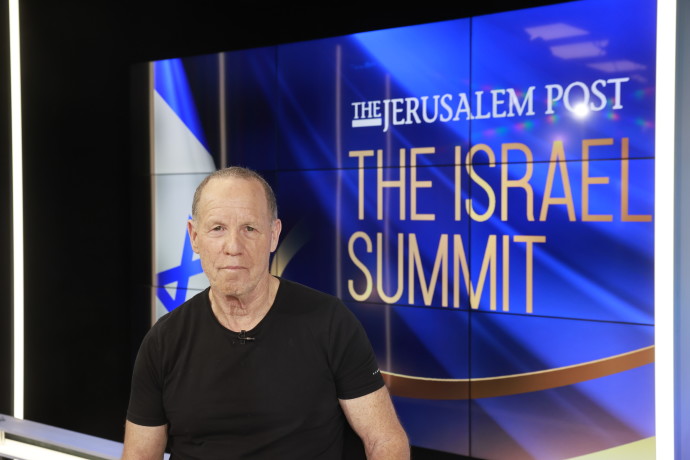Rachel Goldberg-Polin, mother of 23-year-old Hersh Goldberg-Polin, who was abducted from the Supernova music festival at Re’im on October 7, urged Israeli leaders to pay the steep price in order to arrange for the release of the hostages being held by Hamas. Jpost.com Managing Editor Tamar Uriel-Beeri interviewed Goldberg-Polin and Amit Solvy, chairman of Kibbutz Be’eri, in a panel discussion at the Jerusalem Post’s Israel Summit.
Goldberg-Polin told Uriel-Beeri that she and her husband are motivated by a “primate, innate, maternal and paternal response” to save their son, adding that “there’s no more motivating mission than the feeling that we have to run to the end of the earth to save Hersh’s life and to save the lives of all of the hostages who are still there.”

She explained that the trauma of the kidnapping of her son is a type of “slow-motion, ‘stretchy’ trauma that is still happening.” Unlike most traumas, she said, which can begin to heal soon after the trauma occurs, in this case, the pain deepens and continues. “We are still being torn open, and so the pain intensifies with each day.”
A different kind of war
Solvy, who served in the IDF’s special forces in the 1973 Yom Kippur War, said that the circumstances of that conflict were entirely different from the current war. “This is a civilian war,” he said.
He said that there would be no sense of victory if the hostages were not freed. By the same token, he added, victory would be incomplete if Hamas remained in Gaza and continued to threaten the residents of the Gaza envelope.
Ninety-five residents of Kibbutz Be’eri were murdered, seven of its members were taken captive by Hamas, and 125 homes in the kibbutz were destroyed, said Solvy. “It’s not easy at all to come back,” he said, noting that some members may not return. Despite the difficulties, he feels that most of the survivors will want to return to the kibbutz and rebuild it.
“This is our home,” he said.
Solvy said the Be’eri residents are working hard to arrange for the return of the hostages. “We miss the seven members of Be’eri who are still being held captive. I don’t know what happened to them or where they are.”
Goldberg-Polin said that she doesn’t envy Israel’s leaders, who have a two-pronged set of goals for the war – to diminish Hamas’s military capabilities and to obtain the release of the hostages – but she questioned whether the government is devoting enough time to the second issue. “Since the war started, the war goes on 24/7,” she said.
“There’s not one second when we’re not working on the war. And as we have seen, there are days that go by that we’re told that people aren’t coming to the negotiating table. People aren’t having professional negotiators working around the clock trying to come up with innovative, creative, insightful, different ideas to further that second prong that’s supposed to be just as important as the first prong. A lot of people are concerned, and rightfully so. We know that our people are dying. It’s scary for us.
“I’m not a politician, and I’m not a military strategist, and I’m not a diplomat or an ambassador. I’m just a mother who wants her only son home.”
